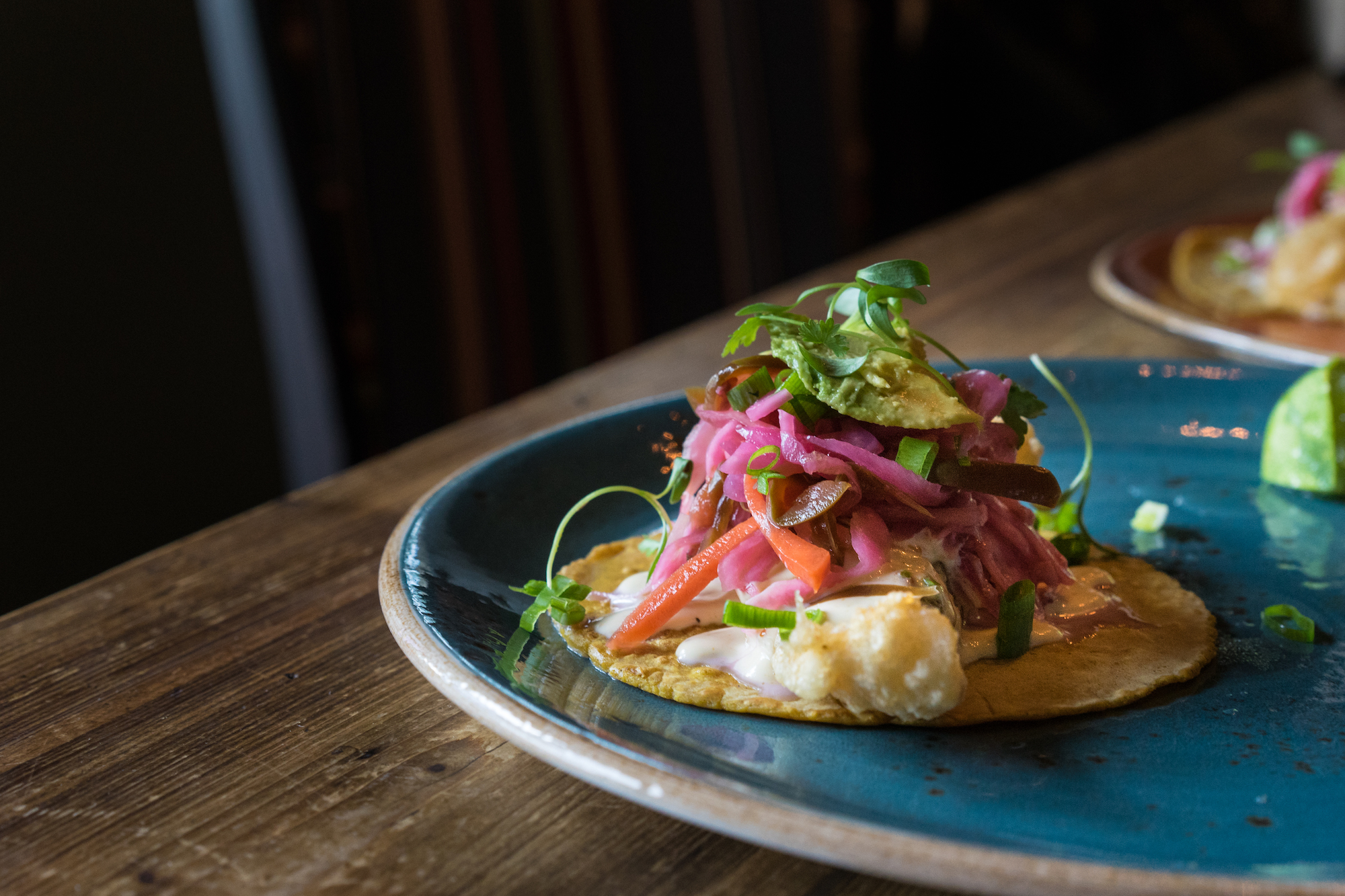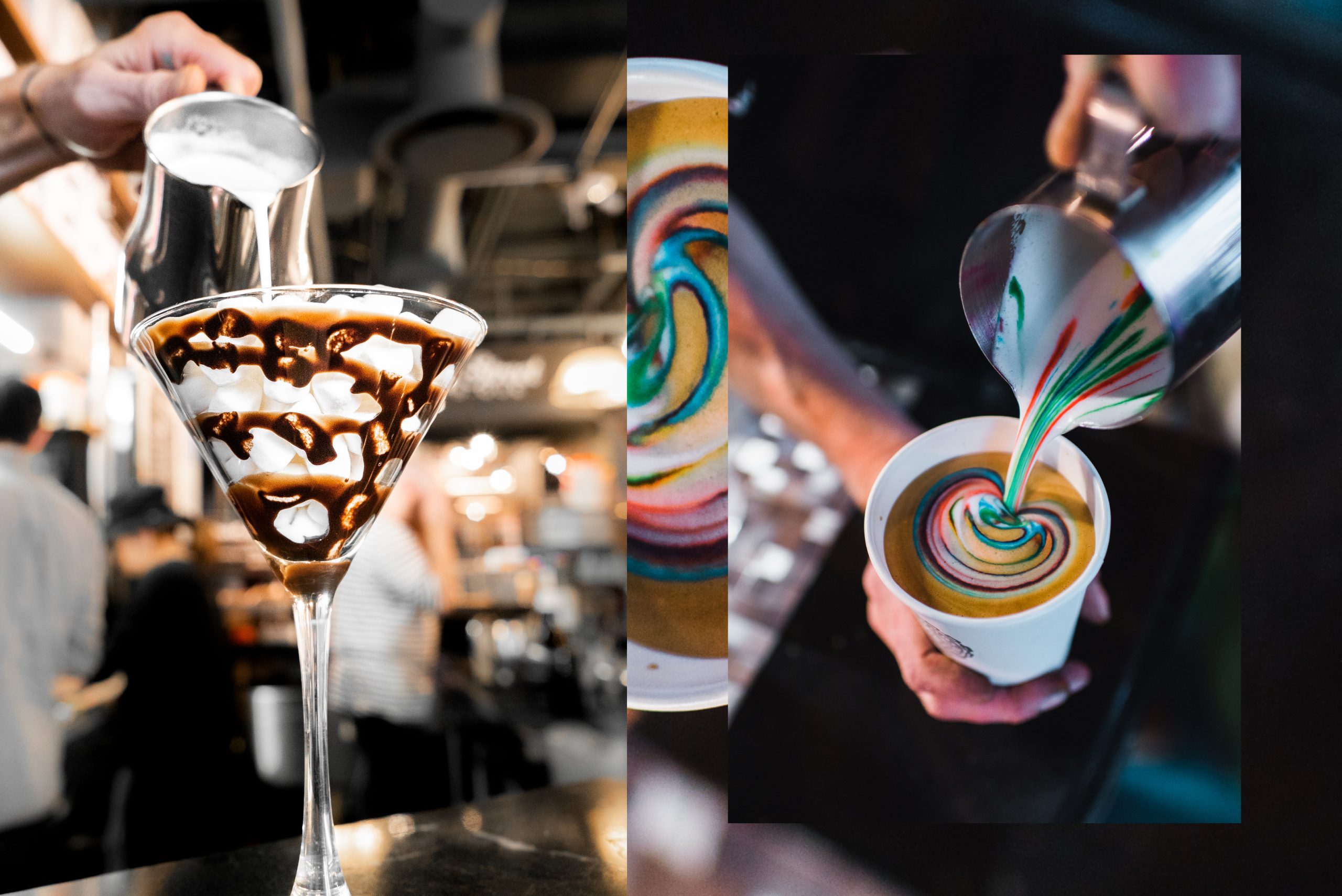We believe in supporting Canadian products, not for the sake of it, but because our nation boasts some of the most top-notch brands and designers in the world. This week, a Toronto food hall that shines a light on indie homegrown Canadian food.
There’s a lot to take in after walking into Assembly Chef’s Hall—and that’s a good thing. This was intentional in its design. The 18,000 square feet dining space features over 15 individual chef and their concept restaurants. Many food halls launched in Toronto since 2017 to take advantage of a larger trend in the city towards experiential dining, but only a few have survived. Assembly is in part the brainchild of former investment banker turned restaurateur Andreas Antoniou, who attributes this success to the space’s ability to transform.
After opening a few different spaces in the city, Antoniou and his partners noticed a growing trend. “There’s this incredible amount of chef talent in the city and it was just yearning for opportunities to get access and really fulfill their dream of one day opening and owning their own restaurant,” he says. Working with Oxford Properties, his team wanted to create space in the heart of downtown Toronto, at grade, connected to the PATH with a patio to showcase this talent—no easy feat.
Having worked downtown in his previous life at Oaktree Credit Management and Credit Suisse, Antoniou understood that during winter, the masses were not going outside if there was any type of adverse weather. “That’s something that many of the big chain restaurants have understood for many, many years. And so while a lot of independents were working around the fringe of the core, they never had access to the spaces that chain restaurants have monopolized,” he adds.


Chefs that co-work in the space with different concepts are less concerned about competition and more interested in celebrating the uniqueness of their concept. “Each restaurant is different from the other,” says Chef Elia Herrera, executive chef and partner at Los Colibris and El Caballito. Often, if she doesn’t serve what a customer is looking for, Herrera gladly recommends customers visit other kitchens in the space who specialize in what the customer is looking for. “Everybody has their own authenticity and their own profile. We collaborate with each other. That’s the mentality that we are building here.”
When Herrera’s restaurant at King and Simcoe Streets was forced to close down after a large rent increase, Antoniou invited her to bring Los Colibris to Assembly—a familiar theme also seen with other concepts in the space, including Bulldog Coffee.


Assembly’s space is designed to be multi-functional. If a visitor has three or four minutes to grab a quick lunch and has to head back to the office, there are quick ways to manage your time from grab-and-go stations. Or, if a visitor is hoping to host a large dinner with food from multiple vendors and dedicated space, that’s available too. In a way, Assembly is hoping to reconstruct how restaurants in the downtown core function.
“It’s very profitable to be in downtown Toronto with such a low rent based on my circumstances with my other location,” says Herrera. “On the customer’s side, it’s fun to have different options at good prices with good quality. There’s always something going on.”
And, if that wasn’t enough, the business is also an incubator for young chef talent. Providing new talented chefs with access to locations in a high density space where they can test what it is that they love to do and see if there’s an opportunity for them to build a real business around it. Assembly provides its chefs with valuable knowledge about their business from a financial standpoint, which helps experimental chefs try out their ideas in a controlled, risk-averse setting.
“And at the end of the day it’s their choice whether or not they choose to listen to the feedback we provide,” Antoniou says. “And so, what’s really important in this environment is we’re not there to control the chefs. We’re there to empower the chefs.”








